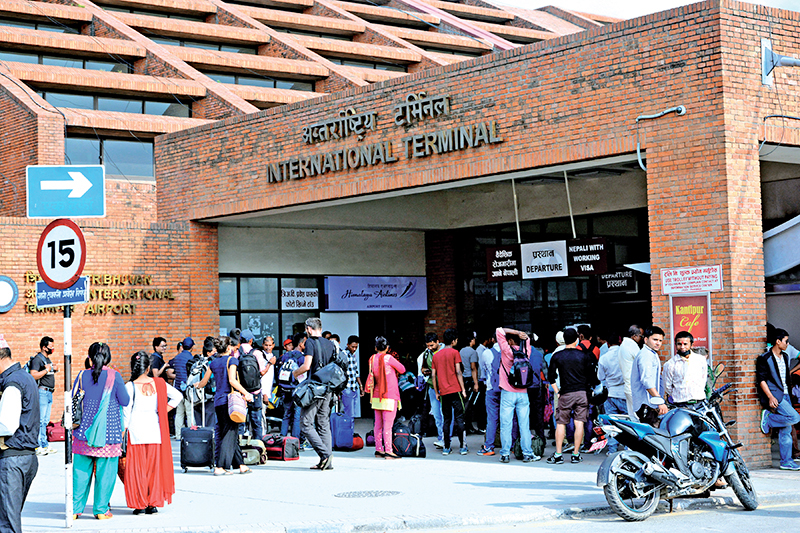Top Countries to Study for Nepalese Students
The following are the countries Nepalese students frequently choose as their study abroad destinations, along with a few reasons why those countries are best for them.
- Sweden
Due to its famous educational system and dedication to sustainability, Sweden is a fantastic study-abroad location for students from Nepal. This country provides several English-taught programs in many academic fields, giving Nepalese students a variety of academic possibilities.
Swedish universities also have alumni associations that bring together graduates from different countries, including Nepal. Nepali students studying in Sweden can join these associations to stay connected with fellow alumni, access career resources, and benefit from professional networking opportunities in both Sweden and Nepal.
A variety of scholarships and financial possibilities is also one of Sweden’s main advantages for Nepalese students. Swedish universities offer scholarships to Nepalese students, which help reduce the cost of studying abroad. Some scholarships include Swedish Institute Study Scholarships, Erasmus Mundus Scholarships, and Karolinska Institute Global Master’s Scholarships.
However, one drawback of studying in Sweden is its higher living cost. Nepali students can expect to spend around $1500-$2000 monthly.
- New Zealand
Due to its friendly atmosphere and advanced educational system, New Zealand is one of the most popular study-abroad destinations for Nepalese students. It offers a growing Nepalese community such as the New Zealand Nepalese Association (NZNA) that provides a strong support system for students studying in New Zealand.
The University of Canterbury and the University of Auckland are among the best universities for Nepalese students that provide a variety of programs and research opportunities. Students from Nepal may look into New Zealand scholarships to help them pay for their education.
Although New Zealand maintains an excellent standard of living, it also offers cheap options when it comes to the expense of living. Nepalese students must budget between $15,000 to $20,000 annually to cover housing, transport, food, and other living expenses.
Moreover, New Zealand celebrates its multiculturalism and embraces diversity. Nepalese students can experience a rich cultural tapestry where they can interact with students from various backgrounds and engage in cultural exchange. This exposure fosters a broader perspective and a deeper appreciation for different cultures.
- Canada
Canada has become among the top study-abroad destinations for students from Nepal. It provides a warm and friendly environment that gives Nepalese students a sense of being at home and improves their academic experience.
The University of Toronto, the University of Alberta, and the University of British Columbia are among the best universities in Canada for Nepalese students seeking higher education.
English is one of the official languages of Canada, and Nepalese students who are proficient in English will have an added advantage in their academic pursuits. The ability to communicate effectively in English will facilitate their studies, interactions with peers and faculty, and integration into Canadian society.
One of the advantages of studying in Canada is despite having excellent living standards, its cost of living and education can be managed on budget. It usually costs between 25,000 and 30,000 Canadian dollars annually, depending on lifestyle and location.
- Germany
Germany is among Nepalese students’ most popular study-abroad countries. Nepalese students looking for economical study options without sacrificing quality will find Germany’s tuition-free or low-cost education system extremely appealing.
Germany offers benefits, including a welcoming and safe environment, diversified educational institutions, and a supportive community, especially for Nepalese students. The presence of student organizations and networks for Nepalis contributes to the feeling of togetherness. For instance, you can join Nepali Students’ Society in Germany to enhance your experience by actively engaging in the group.
Some of the best universities for Nepali students are the University of Bonn, the University of Göttingen, and the Humboldt University of Berlin since they have Nepali teachers who can help them academically.
The cost of living in Germany is quite low, all thanks to tuition-free education. Students can expect to manage their monthly expenses between $600 and $900.
- Japan
Japan has become an excellent option for Nepalese students looking for a study abroad journey. Japan’s advanced technology and innovative culture ideally match Nepalese students’ academic and professional aspirations.
Additionally, Japan and Nepal share certain cultural values and traditions. Nepalese students will find a unique opportunity to experience Japanese culture firsthand and engage in a meaningful cultural exchange. The similarities in values, such as respect for elders, close-knit family structures, and emphasis on traditions, facilitate a smoother transition and sense of familiarity.
The University of Tokyo, Osaka University, Tokyo Institute of Technology, and Kyoto University are among the best universities in Japan for Nepalese students because of their high standard of education and research opportunities.
The cost of living in Japan ranges from $1200 – $1500 monthly for living costs. However, this amount may change depending on the region and the student’s lifestyle preferences. Moreover, students from Nepal can also look for numerous scholarship alternatives, including the Mext scholarship and the Jasso scholarship.
For Nepalese students, studying abroad is a fantastic chance to expand their horizons and determine their future. The experience of studying abroad can change your life, whether by experiencing a different culture, making friends from other countries, or developing a global perspective. Now is the time for all aspirant Nepalese students who desire to study abroad to grab this golden opportunity and embark on an exciting journey that will leave a profound impact on their future.
We hope this article has been helpful for Nepali degree-seeking students. Make sure to also check out our Scholarships Page for different information on scholarships and universities across the globe!



